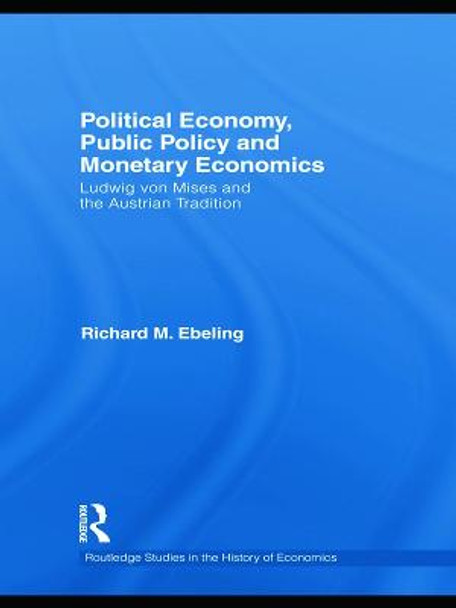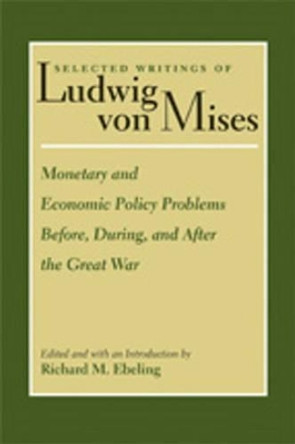Description
Austrian economist, Ludwig von Mises, was one of the most original and controversial economists of the 20th century, both as a defender of free-market liberalism and a leading opponent of socialism and the interventionist-welfare state. He was both the grant designer of a political economy of freedom and a trenchant, detailed critic of government regulatory and monetary policies in the first half of the 20th century.
This fascinating book explores the cultural currents of anti-Semitism in Austria before and after the First World War that Mises confronted as an Austrian Jew; his analysis of Austria-Hungary's establishment of a gold standard; Mises' multi-sided activities in the years after the World War I in stemming a hyperinflation, opposing government fiscal mismanagement, and resisting misguided policies during the Great Depression; and his analysis of how Europe plunged into World War II and the policies to restore freedom and prosperity in the post-war period. It also discusses the confrontation between the Austrian Economists and the Keynesians over the causes and cures for the Great Depression, as well as how Mises' "Austrian" approach to money and the business cycle contrasted with both the ideas of Joseph A. Schumpeter and the Swedish Economists of the interwar period.
This volume breaks new ground in placing Ludwig von Mises' many original views on political economy, public policy and monetary economics in the historical context of his time, especially during the interwar period when he was a senior economic analyst for the Vienna Chamber of Commerce and after his arrival in America during World War II. The book will therefore be of interest to students and researchers in monetary economics, political economy, expectations theory and the market process, and the history of economic thought.
About the Author
Richard M. Ebeling is Professor of Economics at Northwood University in Midland, Michigan.
Reviews
"Given the current global economic crisis, with its origins in a credit crisis, and the failure of modern macroeconomics to provide an adequate theory for the links between the credit markets and the economy, the economics profession badly needs new insights into the role of credit and expectations in causing economic fluctuations. It could learn from the ideas and policy recommendations of those economists who lived through the Great Depression. Von Mises was one of those great economists. This book is a welcome invitation to examine the ideas of von Mises and the Austrian school on such vitally important subjects."
Jagdish Handa, McGill University
"In an era in which we are seeing increased interest in studying economic theorists from the Great Depression, Ebeling has done a great service in writing a fresh work on a figure who has been greatly neglected in recent years. Ludwig von Mises merits more attention whether one ultimately agrees with him or not."
James E. Hartley, Mount Holyoke College
Book Information
ISBN 9780415745529
Author Richard M. Ebeling
Format Paperback
Page Count 372
Imprint Routledge
Publisher Taylor & Francis Ltd
Weight(grams) 566g







